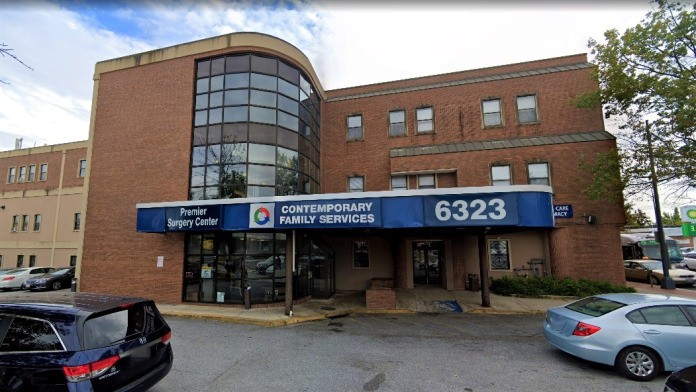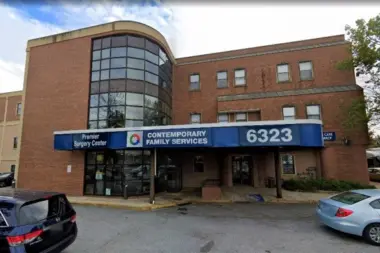About Neighbors’ Consejo
One of the things that set the clinic apart is that they are dedicated to being culturally and linguistically competent. They aim to hire bilingual staff members, specifically those who speak Spanish, French or Amharic. Additionally, they place a strong emphasis on their guiding principles which include empathy, solidarity, hope and respect.
The clinic’s overall goal is to help build a healthier and happier community. Neighbors’ Consejo is funded by donations, government grants and Medicaid which allows its services to be offered at no cost to clients.
As part of the clinic’s psychiatric services clients will be assessed and treated while receiving medication management. The clinic’s psychotherapy services are offered online and in-person and include a “person-centered treatment plan” as well as group and individual therapy sessions. Through their community support services the clinic helps clients learn necessary life skills that will allow them to lead more functional and self sufficient lives. Neighbors’ Consejo also assists clients with applying for government programs.
The clinic has received mostly positive feedback with several people noting that Neighbors’ Consejo has been instrumental in helping improve their overall mental health. However, some reviews indicated issues with customer service, specifically with receptionists.
Latest Reviews
Neighbors’ Consejo
Neighbors’ Consejo
Rehab Score
Gallery

-696x346.webp)

-380x253.webp)
Other Forms of Payment
Private insurance refers to any kind of healthcare coverage that isn't from the state or federal government. This includes individual and family plans offered by an employer or purchased from the Insurance Marketplace. Every plan will have different requirements and out of pocket costs so be sure to get the full details before you start treatment.
Self-pay involves paying for treatment out of your own pocket. You can use savings or credit, get a personal loan, or receive help from family and friends to fund your treatment. If you don't have insurance or your insurance plan doesn't cover a specific program, self-pay can help ensure you still get the care you need.
Financial aid can take many forms. Centers may have grants or scholarships available to clients who meet eligibility requirements. Programs that receive SAMHSA grants may have financial aid available for those who need treatment as well. Grants and scholarships can help you pai for treatment without having to repay.
Addiction Treatments
Levels of Care
Outpatient Programs (OP) are for those seeking mental rehab or drug rehab, but who also stay at home every night. The main difference between outpatient treatment (OP) and intensive outpatient treatment (IOP) lies in the amount of hours the patient spends at the facility. Most of the time an outpatient program is designed for someone who has completed an inpatient stay and is looking to continue their growth in recovery. Outpatient is not meant to be the starting point, it is commonly referred to as aftercare.
If you need a high level of supervision and intensive addiction treatment, inpatient rehab is available in Washington, DC. This level of treatment involves 24-hour care and typically lasts 30, 60, or 90 days. During inpatient rehab, you'll live at the facility and may participate in group and individual therapy, medication assisted treatment, and peer support programs such as AA.
An intensive outpatient program (IOP) in Washington, DC is ideal for those who need a high level of care but also want to live at home while completing a recovery program. You'll attend several hours of treatment multiple days per week, then return home at night. The program may include group and individual counseling, holistic care, medication assisted treatment, and recovery education.
When you complete a treatment program, aftercare offers the ongoing support you need for long-term recovery. Aftercare may be provided in the form of support groups, continued individual counseling, housing assistance, or alumni clubs. These supports help prevent relapse and encourage success as you return to your workplace and community.
Treatments
Mental health rehabs focus on helping individuals recover from mental illnesses like bipolar disorder, clinical depression, anxiety disorders, schizophrenia, and more. Mental health professionals at these facilities are trained to understand and treat mental health issues, both in individual and group settings.
Programs
Adult rehab programs include therapies tailored to each client's specific needs, goals, and recovery progress. They are tailored to the specific challenges adult clients may face, including family and work pressures and commitments. From inpatient and residential treatment to various levels of outpatient services, there are many options available. Some facilities also help adults work through co-occurring conditions, like anxiety, that can accompany addiction.
Young adulthood can be an exciting, yet difficult, time of transition. Individuals in their late teens to mid-20s face unique stressors related to school, jobs, families, and social circles, which can lead to a rise in substance use. Rehab centers with dedicated young adult programs will include activities and amenities that cater to this age group, with an emphasis on specialized counseling, peer socialization, and ongoing aftercare.
Clinical Services
Cognitive Behavioral Therapy (CBT) is a therapy modality that focuses on the relationship between one's thoughts, feelings, and behaviors. It is used to establish and allow for healthy responses to thoughts and feelings (instead of unhealthy responses, like using drugs or alcohol). CBT has been proven effective for recovering addicts of all kinds, and is used to strengthen a patient's own self-awareness and ability to self-regulate. CBT allows individuals to monitor their own emotional state, become more adept at communicating with others, and manage stress without needing to engage in substance abuse.
Experiential therapy is a form of therapy in which clients are encouraged to surface and work through subconscious issues by engaging in real-time experiences. Experiential therapy departs from traditional talk therapy by involving the body, and having clients engage in activities, movements, and physical and emotional expression. This can involve role-play or using props (which can include other people). Experiential therapy can help people process trauma, memories, and emotion quickly, deeply, and in a lasting fashion, leading to substantial and impactful healing.
Group therapy is any therapeutic work that happens in a group (not one-on-one). There are a number of different group therapy modalities, including support groups, experiential therapy, psycho-education, and more. Group therapy involves treatment as well as processing interaction between group members.
In individual therapy, a patient meets one-on-one with a trained psychologist or counselor. Therapy is a pivotal part of effective substance abuse treatment, as it often covers root causes of addiction, including challenges faced by the patient in their social, family, and work/school life.
Motivational Interviewing (MI) is a clinical approach to helping people with substance abuse issues and other conditions shift behavior in positive ways. It is more goal-oriented than traditional psychotherapy, as MI counselors directly attempt to get clients to consider making behavioral change (rather than wait for them to come to conclusions themselves). Its primary purpose is to resolve ambivalence and help clients become able to make healthy choices freely.
Rational Behavior Therapy (RBT) is a form of cognitive behavioral therapy meant to be short-term and comprehensive. It was intended to help clients become more self-sufficent and move forward without the need for expensive, ongoing therapy. It includes an emotional self-help method called “rational self-counseling,” the purpose of which is to give clients all the skills needed to handle future emotional issues by themselves, or with significantly less professional help.
Trauma therapy addresses traumatic incidents from a client's past that are likely affecting their present-day experience. Trauma is often one of the primary triggers and potential causes of addiction, and can stem from child sexual abuse, domestic violence, having a parent with a mental illness, losing one or both parents at a young age, teenage or adult sexual assault, or any number of other factors. The purpose of trauma therapy is to allow a patient to process trauma and move through and past it, with the help of trained and compassionate mental health professionals.
Amenities
-
Residential Setting
-
Private Setting
Staff

Johan Orjuela
Clinical Director
Contact Information
6323 Georgia Avenue NW
Suite 206
Washington, DC 20011